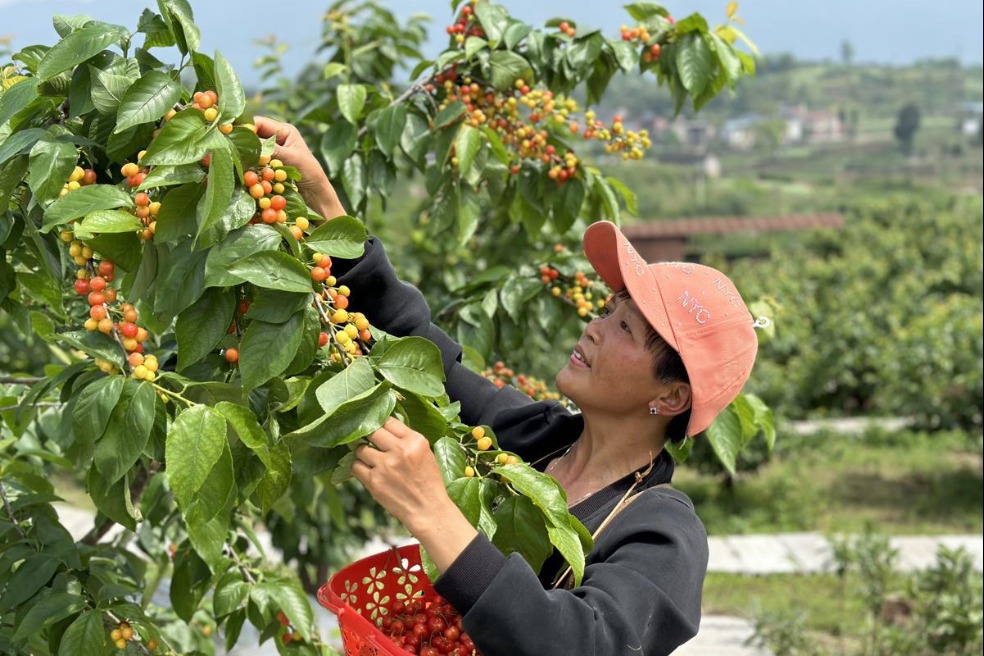Filial piety fund emerges to help make virtue thrive

ZHENGZHOU - On a bulletin board in Licun village, Henan province, hangs a list of all residents aged 70 or above, followed by the names of their children and the contributions each child has made to a special fund. For centuries, Chinese people have highly valued the way they treat their parents, called filial piety. Nowadays, authorities in rural areas have even turned to a filial piety fund.
Villager Li Zhengcai, 70, received 550 yuan ($87) of funds in January.
"Five hundred yuan came from my five children, and another 50 was from subsidies from the local government and private donations," Li said.
Licun is one of 388 villages in Luoning, an impoverished county that piloted the voluntary fund in 2017 to encourage children to support their aging parents.
Luoning is home to more than 16,000 residents aged 70 or above. As of mid-January, its filial piety funds had received 3.87 million yuan, mostly from the 40,000-plus children of the county's elderly.
According to Li Chunguang, head of Luoning's publicity department, those whose parents are 70 or above are expected to contribute 100 yuan to the fund each month. The county government and private donors add a subsidy of up to 50 yuan for each senior.
There were about 230 million people aged 60 or over in China at the end of 2016, close to 17 percent of the population. More than half of them were "empty-nesters", who live apart from their children.
For thousands of years, the Chinese have relied on their children to take care of them in their old age. The Chinese saying, "Of all virtues, filial piety is the first" demonstrates the primacy of respecting one's elders in the culture.
As times change in China, along with the rest of the world, traditional virtues are affected.
Yi Jianbo, director with Luoning's poverty relief office, said one of the reasons for establishing the funds is to eliminate poverty caused by unfilial behavior.
Some elderly people live in poverty because their children are either unwilling or unable to contribute to their wellbeing.
"The country's poverty relief efforts should not pay the bills for adults who are able but unwilling to support their aged parents," Yi said.
Many places in China have started pioneering ways to put an end to unfilial practices. The Wan'an county people's court in Jiangxi province lists unfilial children on a blacklist and makes their names public to shame them into compliance.
This year, China is setting specific tasks for the country's rural vitalization, emphasizing civic-mindedness in rural areas, including filial piety among farmers.
Dai Songchan, 80, does not have to worry about money anymore. Her children are regular contributors to the piety fund in Gaowan village, through which she receives 550 yuan each month.
"Being poor should not become our excuse for failure to fulfill filial duties. We should set a good example for our children and let the traditional virtues pass down to the next generation," said Yang Fengping, Dai's daughter-in-law.
- Number of foreign visits increases over threefold
- Shopping mall hosts 'space-out' competition in China
- Vlogger faces prison time, fines for killing wild boar in Beijing
- PBOC former vice-governor pleads guilty for bribery
- Shenzhou XVI crew members awarded for explorations
- China awards medals to Shenzhou-16 astronauts





































